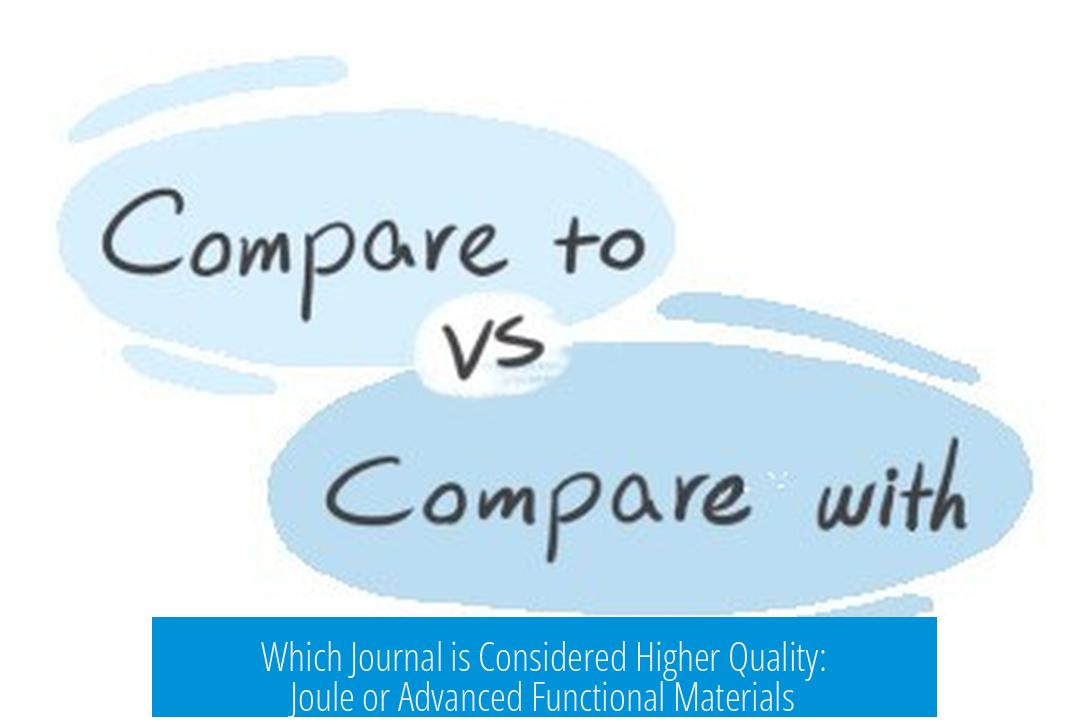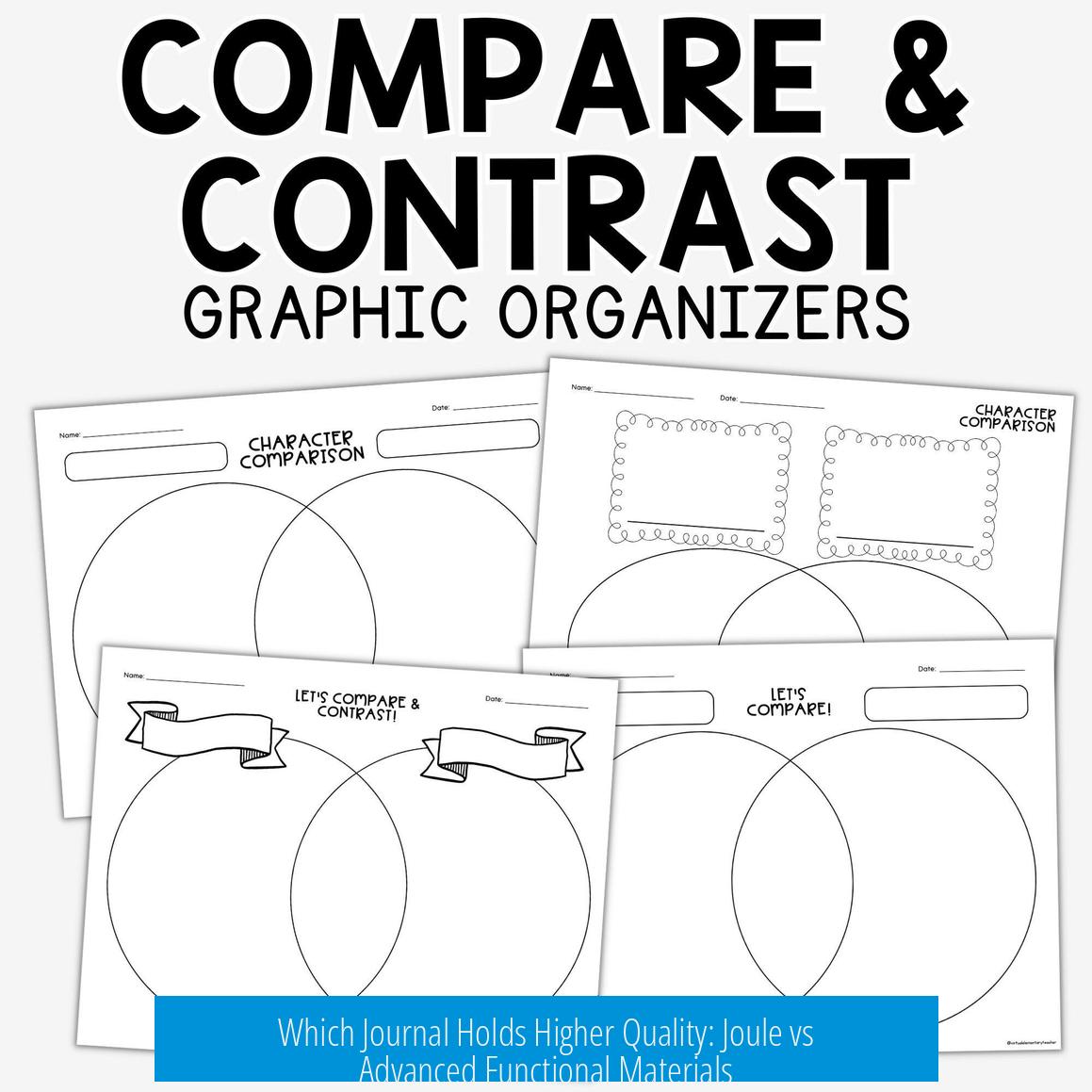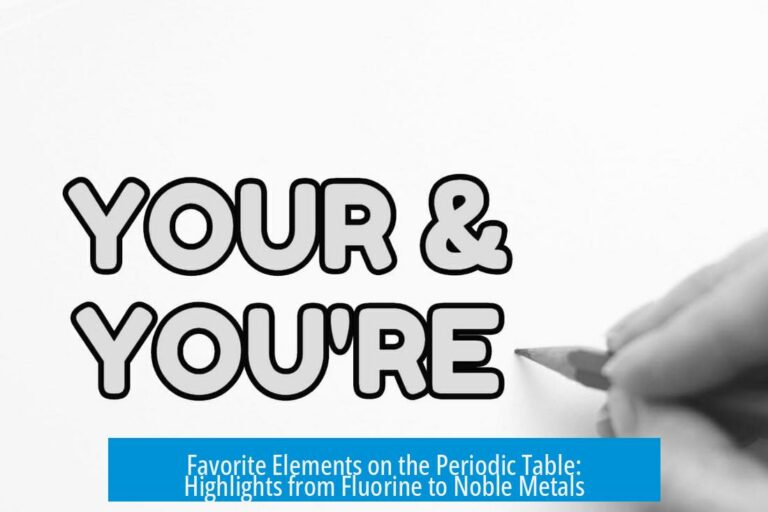Which Journal is Considered Higher Quality: Joule or Advanced Functional Materials?

Determining which journal is higher quality between Joule and Advanced Functional Materials (AFM) depends on multiple factors, including impact factor, subject relevance, journal reputation, and publisher practices.
Impact Factors and Their Limitations
One common metric for evaluating journal quality is the impact factor. Both Joule and AFM have strong impact factors, reflecting citation frequency. However, impact factor alone is insufficient to fully compare journal quality. Specialty journals like AFM may have fewer readers but high-quality outputs focused on specific fields. Thus, impact factor should be one part of a broader evaluation.
Relevance to Subject Area
The choice between Joule and AFM often depends on the research topic. Joule, while newer, targets energy research broadly and aligns well with interdisciplinary energy science. Advanced Functional Materials has a long-standing reputation in materials chemistry and is favored by researchers in functional materials science. Researchers specializing in photo/materials chemistry often prefer AFM, as Joule’s scope may not be the best fit.
Journal Reputation and Publisher Influence
Joule is a relatively new journal but benefits from being part of a prestigious family of journals under Cell Press, linked to high editorial standards. AFM, published by Wiley, has established itself as a leading journal in materials science over many years. Both journals are under large, for-profit publishers, which often charge expensive subscription fees. This can limit accessibility but does not necessarily affect quality.
Perception and Editorial Focus
Some perceive Joule as leaning towards popular, multidisciplinary energy topics, while AFM is viewed as more specialized and accuracy-focused in materials chemistry. This distinction, however, stems from intuition rather than hard metrics and should be considered carefully.
Cost and Access Considerations
Both journals have high subscription costs due to publisher policies—Elsevier for Joule and Wiley for AFM. Researchers and institutions may seek alternative open-access journals for wider accessibility and reduced costs, though these alternatives might have different reputational standings.
Key Takeaways
- Impact factor is a starting point but not conclusive when comparing Joule and AFM.
- Subject relevance significantly influences journal suitability.
- Joule is newer but benefits from a prestigious publisher family; AFM is well-established in materials science.
- Perceptions suggest Joule targets broader energy science while AFM focuses on materials accuracy.
- Both journals come with high subscription costs, making access an important consideration.
Which journal has a higher impact factor, Joule or Advanced Functional Materials?
Impact factors can be checked for both journals. This is a common way to compare them, but it does not fully define journal quality.
Is subject area important when choosing between Joule and Advanced Functional Materials?
Yes, the choice depends on your research field. For example, materials chemists often prefer Advanced Functional Materials over Joule.
Does Joule have an established reputation despite being newer?
Joule is relatively new but is linked to a family of well-known, reputable journals. This gives it credibility.
How do Joule and Advanced Functional Materials differ in focus or approach?
Some feel Joule may emphasize popularity, while Advanced Functional Materials may focus more on technical accuracy, though this is a personal impression.
Are there cost differences between publishing in Joule and Advanced Functional Materials?
Both belong to major publishers with high subscription fees—Elsevier for Joule and Wiley for Advanced Functional Materials. Costs are similar and generally high.
Should I consider open access or society journals instead of these two?
Yes, alternative journals, including open access or society publishers, might offer better access and lower costs than Joule or Advanced Functional Materials.





Leave a Comment